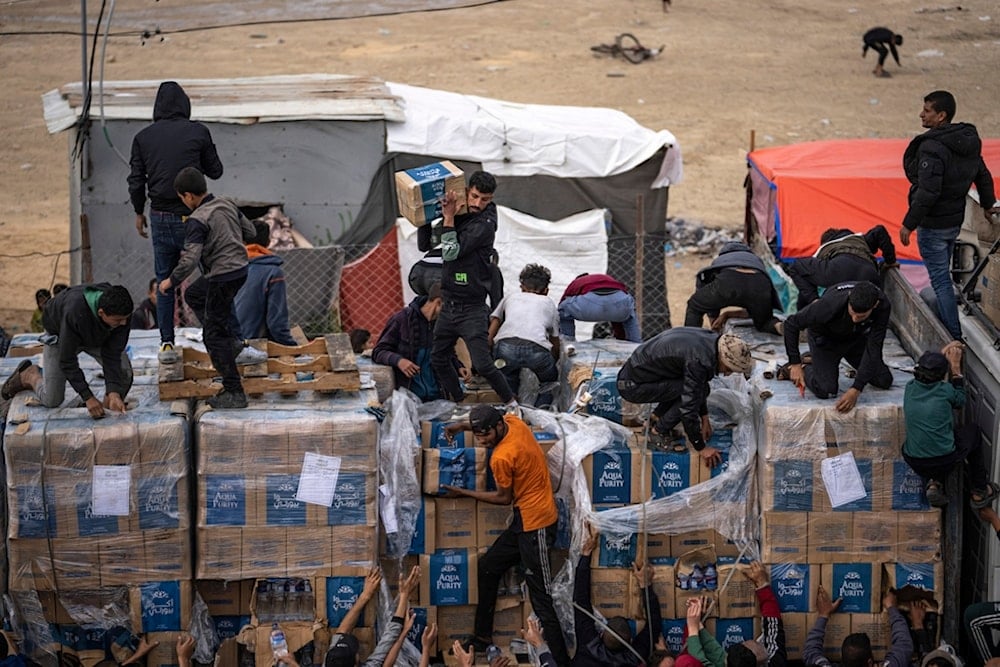Rafah crossing to open 14 days after captives handover, source says
The Israeli occupation will withdraw from the Rafah border crossing just two weeks after the ceasefire deal is reached as it waits for its forces to withdraw from the Philadelphi corridor.
-

Palestinians grab humanitarian aid from a truck as it crossed into the Gaza Strip in Rafah, Dec. 17, 2023 (AP)
A special source within the Palestinian resistance revealed to Al Mayadeen that preparations in Cairo are in full swing "to begin implementing the ceasefire agreement."
According to the source, the preparations focus on prisoner exchanges, humanitarian relief efforts, and field monitoring for any ceasefire violations. These activities will take place with the presence of Egyptian, Qatari, American, Israeli, and Hamas representatives.
The source added that the Rafah crossing is currently undergoing rehabilitation, and following the release of Israeli female soldiers after 14 days, the crossing will be reopened under arrangements led by the Egyptian side in coordination with Palestinian authorities.
Priority will be given to the wounded, the sick, and humanitarian cases, alongside the facilitation of aid entry, coordinated with Egyptian authorities.
Furthermore, the source stated that in the initial phase, the Israeli army will retreat one kilometer away from the Rafah crossing until its withdrawal from the Philadelphi Corridor is completed.
Prisoner swap favors Resistance
A Palestinian source disclosed exclusive details to Al Mayadeen regarding the prisoner exchange agreement tied to the ceasefire deal.
Speaking on Friday, the source stated that for every female or child captive released by the Palestinian resistance, 30 Palestinian prisoners, including women and children, would be freed. Similarly, for every elderly captive aged 50 or older, or for those suffering from illnesses, 30 elderly or sick Palestinian detainees will be released.
The source further elaborated that for each Israeli female soldier released, 30 Palestinian prisoners serving life sentences and 20 others with lengthy sentences—who have 15 years or less remaining—will be freed.
The initial phase of the agreement focuses on Palestinian prisoners who were previously part of the 2011 exchange deal but were later rearrested by Israeli authorities, numbering 47 individuals.
Additionally, the agreement ensures that Palestinian prisoners freed under this deal would not be rearrested on the same charges for which they were previously detained. They will not be required to serve the remainder of their initial sentences, nor will they need to sign any documents as a condition for their release.

 2 Min Read
2 Min Read








